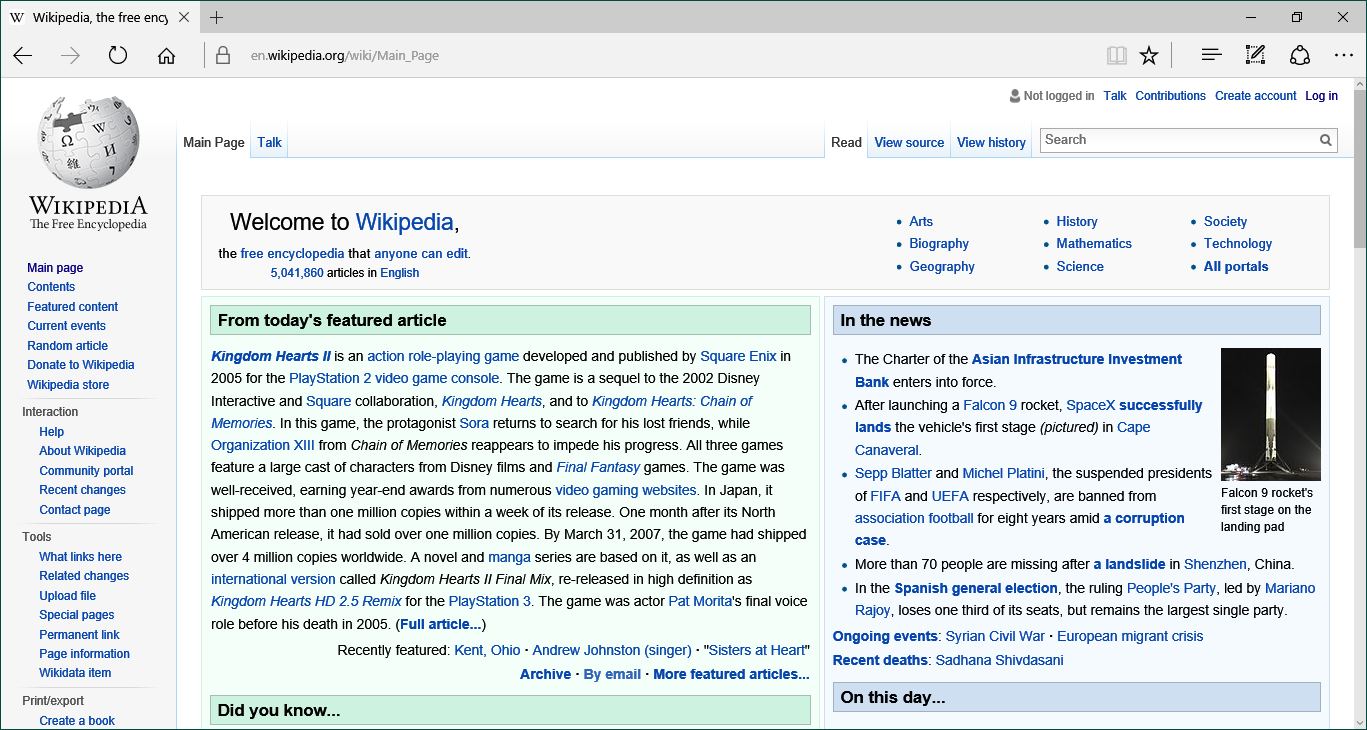- Microsoft is poised to ditch Microsoft Edge, the default web browser on Windows 10, according to reports from The Verge and Windows Central.
- Instead, Microsoft could release a new browser that’s based on Chromium, the web engine that powers the leading Google Chrome web browser.
- Chromium is a leading web standard, while Microsoft’s EdgeHTML has lagged considerably.
- Among other things, this would open the door for Google Chrome to finally come to the Windows Store on Windows 10.
Microsoft is slated to discontinue Edge, the browser that comes built into Windows 10, according to reports from The Verge and Windows Central. Edge was introduced in 2015 as the successor to Microsoft Internet Explorer.
The idea, according to those reports, is that Microsoft is moving away from its own EdgeHTML rendering engine and towards Chromium, the web engine that powers Google Chrome. Chromium, first released by Google in 2008, has become the web’s predominant standard, thanks to the wild success of the Chrome browser.
The success of Chromium has become something of a headache for Microsoft, both internally and externally – The Verge reported that employees and customers alike have been frustrated that the Microsoft Edge browser doesn’t work properly with some websites and apps that were optimized for Chromium.
It sounds like Microsoft is poised to release a new browser, based on Chromium, that would leave EdgeHTML in the past. Intriguingly, The Verge reported that this move would also open the door for a version of Google Chrome on the Windows app store – the main thing stopping that from happening, so far, is that Microsoft has required all web browsers in the Windows Store to use EdgeHTML. If EdgeHTML goes, so too will that barrier.
Read more: Microsoft removed a 'useless' Google app from its store for violating its policies
Of note is that this new browser could recycle the Edge name, and it could even take much of its interface. After all, Microsoft Edge may not have been as mature or fully featured as Google Chrome, but it has a slick interface and pretty solid performance. However, the engine is the very heart of a web browser, and without EdgeHTML, it would really and truly be a whole new piece of software, whatever Microsoft ends up naming it.
Also of note is that such a web browser could play right into a new round of rumors that Microsoft is working on a so-called "Windows Lite." That hypothetical version of Windows would be stripped down to be little more than a web browser, similar to Google ChromeOS, which is Microsoft's chief competitor in the classroom market.
In the same way that Google ChromeOS is based on a Chromium core, a new web browser could give Microsoft the foundation for that supposed Windows Lite, which could take on Google on its own turf.
Microsoft declined to comment. The Verge reported that there could be more details as soon as this week.

